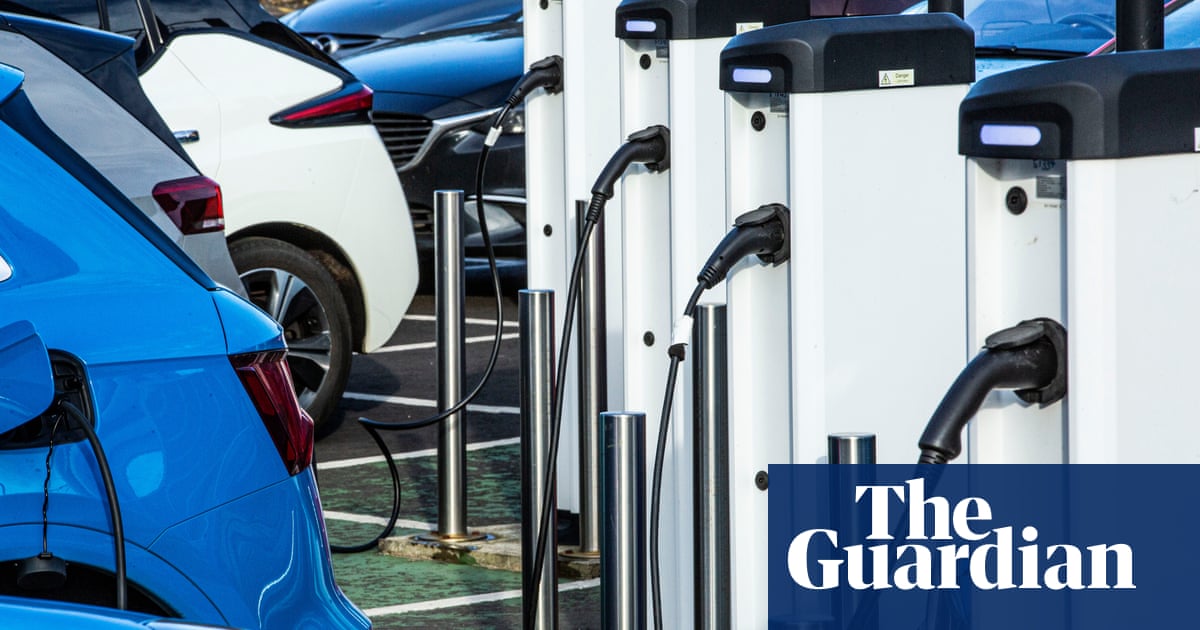Worried carmakers call for urgent UK help to reignite waning interest in electric vehicles

Car manufacturers have called for urgent action to reignite the switch to electric vehicles, after sales figures showed slowing demand among ordinary motorists for battery-powered cars.
While overall UK registrations grew by 1% in April year-on-year to 134,000, the increase was caused by fleet sales, with private buyer sales down by almost 18% on last year.
Manufacturers are alarmed by slowing sales growth in battery electric vehicles, which in the first four months of 2024 have only increased market share by 0.3% from the same period in 2023, to 15.7%, despite the rapid take-up in previous years.
While the industry expects the figure to improve this year, the Society of Motor Manufacturers and Traders (SMMT) said that BEV sales would be below government targets of 22% of all new cars, and called for steps to “re-enthuse” buyers, including tax cuts, incentives and more chargers.
The SMMT said incentives had increased take-up of battery electric vehicles in the fleet market, and similar moves for private buyers would hasten the transition. It urged a halving of VAT on new battery-powered cars, and changing the threshold for taxing luxury cars. The additional “expensive car” levy paid in vehicle excise duty is due to apply to electric cars from April 2025, which are still significantly more expensive than petrol equivalents despite manufacturers’ pledges to reduce production costs.
The industry body said more work was needed to install charge points nationwide to improve consumer confidence – the UK still has one standard charger for every 35 plug-in cars, despite record numbers of installations last year and at the start of 2024.
Mike Hawes, SMMT chief executive, said: “The absence of government incentives for private buyers is having a marked effect. Although attractive deals on EVs are in place, manufacturers cannot fund the mass-market transition single-handedly. Temporarily cutting VAT, treating EVs as fiscally mainstream not luxury vehicles, and taking steps to instil consumer confidence in the charge point network will drive the market growth on which Britain’s net zero ambition depends.”
The government introduced a mandate last September for 22% of carmakers’ sales in 2024 to be zero-emission vehicles, but also extended the deadline for a ban on the sale of new fossil fuel cars until 2035. A grant scheme for private buyers of EVs was ended in 2022.
after newsletter promotion
Car dealers echoed the SMMT concerns. Ian Plummer, commercial director of Auto Trader, said EVs were typically 35% dearer than traditionally fuelled petrol and diesel models, adding: “The discounts we’ve seen manufacturers offer to incentivise consumers into new electric cars seems to be working … That said, we’ll need to see even more price action to achieve mass electric adoption.”
Lisa Watson, director of sales at Close Bros Motor Finance said: “Manufacturers may have cause for concern that the number of new petrol vehicles registered continues to outdo the sales of battery electric vehicle registrations, bringing into sharp focus the work the UK government needs to do to improve inadequate infrastructure such as charging points, and allay motorist concerns to encourage adoption.”
Related
Why investing in women is a vital next step for…
Get Nadine White's Race Report newsletter for a fresh perspective on the week's newsGet our free newsletter from The Independent's Race CorrespondentGet our fre
Business secretary signals major shift on electric car policy to…
In a determined effort to retain Nissan’s manufacturing presence in Britain, Business Secretary Jonathan Reynolds has vowed to implement “substantial c
Joint Statement: Business Secretary and Fujitsu Services Ltd
Business and Trade Secretary Jonathan Reynolds today (Friday 7 March) met chiefs for Fujitsu in Tokyo to begin talks over the cost of redress for victims of th
UK foreign secretary backs multilateral defence funding for Europe
UK foreign secretary David Lammy has said that a new multilateral fund will be needed to secure Europe’s defence as he confirmed that Britain is “open to”













